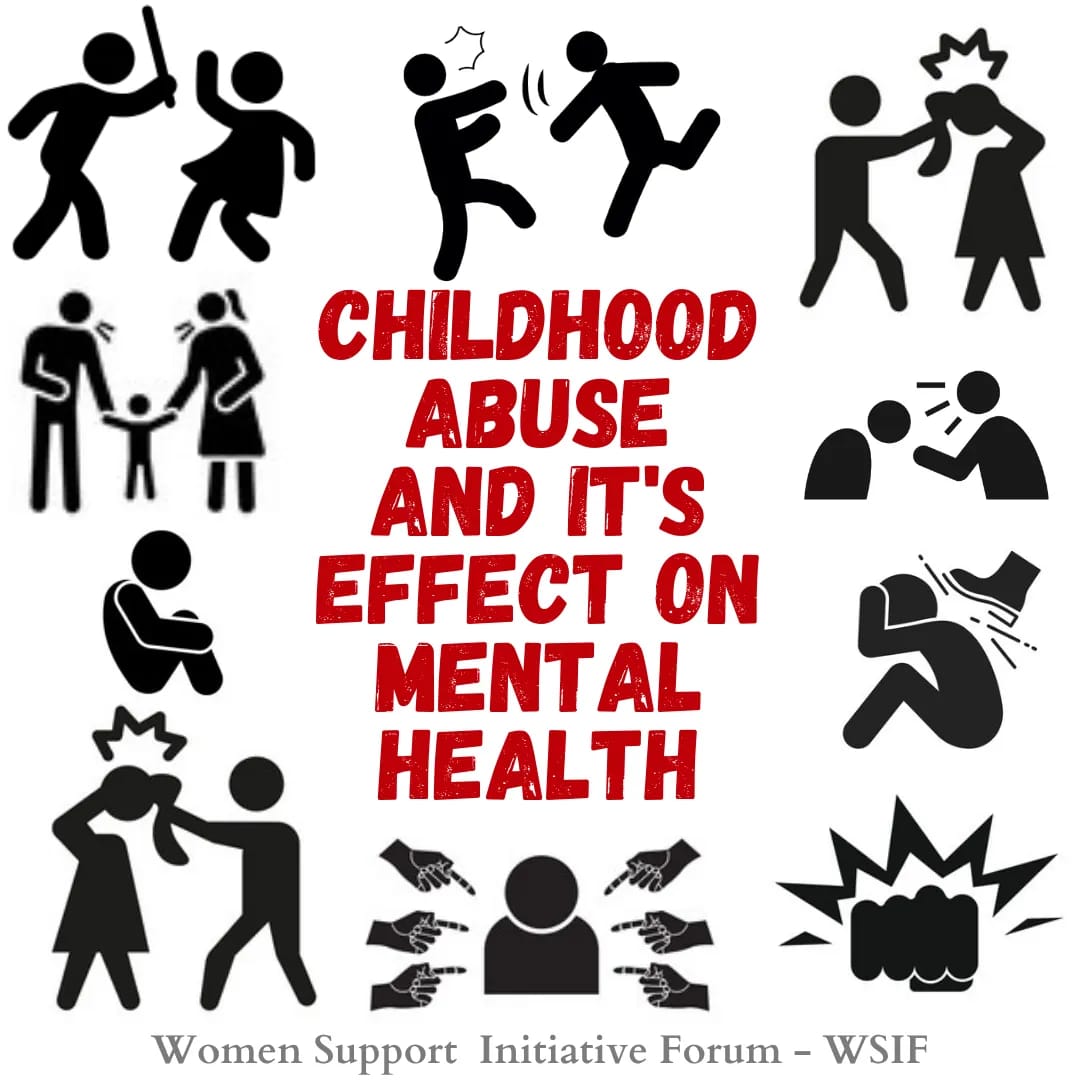We can define “Childhood abuse” simply as any kind of maltreatment by an adult that is outside the normal terms of conduct and has the risk of causing physical or emotional harm to a young person. We often misunderstand childhood abuse as some sort of physical violence directed towards a child. When in reality, it can take many forms, it can be-
- Physical: which includes all forms of physical violence, injury, or harm to the child.
- Emotional or psychological: which means treating the child in a manner that lowers their self-esteem, makes them feel inadequate or unloved.
- Sexual: any sexual contact or activity with a child that is forced by an adult.
- Neglect: simply means not providing the child with adequate care and nurture that he/she needs, be that physical, psychological, medical or as basic as food, shelter, education or clothing.
- Witnessing family violence: exposing the child to violence against other family members.
Childhood abuse, neglect, and traumatic experiences have the ability to change and affect the structure and development of the brain and chemical functions. They can also affect the way a child behaves, regulate emotion, and function in society. The potential effects include-
- The child is unable to relax and on alert constantly, no matter the setting or environment.
- Being afraid or fearful all the time or most of the time.
- Having learning difficulties
- Finding social interactions or situations difficult to navigate.
- Delayed developmental milestones
- Increased risk of developing mental health issues.
Not everybody who experienced abuse in their childhood, grow up and develop some sort of mental health issues. However, it’s estimated that over half of the adults with prior history of childhood abuse have an increased risk of experiencing common mental health issues and in some case major ones, such as:
- Generalized anxiety disorder (GAD)
- Major depressive disorder (MDD)
- Post-traumatic stress disorder (PTSD)
- Bipolar mood disorder (BMD)
- Personality disorder
- Panic disorder
- Sleep disorder
- Eating disorder (ED)
- Psychosis and Schizoprenia etc.
The list goes on. Not only mental health issues, but these children also experience many difficulties that last into adulthood. They may have difficulty with interpersonal relationships or tend to avoid them altogether. The long-term consequences may lead to –
- Emotional dysregulation, which means inability or poor ability to manage or regulate one’s emotional response
- Hopelessness
- Poor self-esteem
- Negative thoughts or mindset
- Difficulty coping with stressful situations
- Excessive Anger and trust issues.
- Self-harm and suicidal thoughts
- Nicotine dependence, etc.
- Alcoholism
- Substance abuse
But there’s hope, with proper management, it is possible to address the effect of childhood abuse and neglect. Any sort of psychological management would most likely include therapy and depending on the presence of mental health conditions, may include medications as well. Here are some examples of effective forms of therapy –
- Family therapy: works by improving the relationship between all members of the family and creating a healthy, better and supportive environment.
- Exposure therapy: it usually exposes an individual to situations that they fear and slowly teaches them how to remain calm in said situations and gradually be able to deal with it better.
- Mindfulness-based approaches: helps individuals in developing a sense of awareness of their feelings and thought processes, so that they are able to understand them better and learn to regulate them.
- Trauma-focused cognitive behavioral therapy: it teaches people how to cope with difficulties that they have been facing, help them in restructuring their unhelpful or negative thoughts, assists them in regulating their moods and focuses on overcoming their traumas.
Written by –
Dr. Anan Nisat Nabela Hossain


